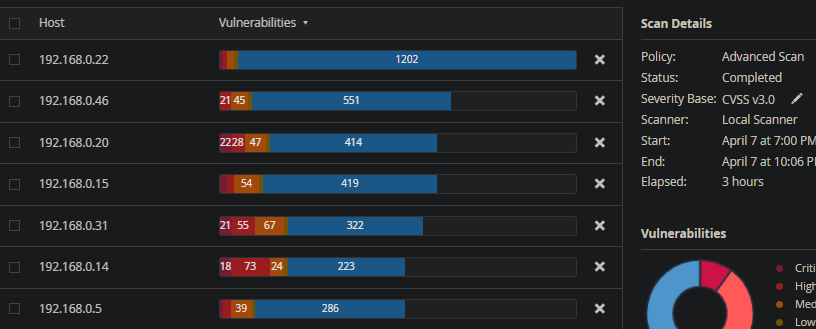Vulnerability remediation is the process of identifying, prioritizing, and addressing security vulnerabilities in an enterprise environment. In today’s digital age, businesses are more reliant on technology than ever before, and as a result, they are exposed to a higher number of security risks. Vulnerabilities in software, hardware, or network infrastructure can be exploited by attackers to gain unauthorized access to sensitive information, steal intellectual property, or cause other forms of damage to the organization.
In this blog post, we will discuss the importance of vulnerability remediation in an enterprise environment and why it should be a top priority for all organizations.

- Protects Against Cyber Attacks
One of the primary reasons why vulnerability remediation is crucial in an enterprise environment is that it helps protect against cyber attacks. As mentioned earlier, vulnerabilities can be exploited by attackers to gain unauthorized access to sensitive information or cause other forms of damage to the organization. This can include stealing confidential data, disrupting business operations, or even hijacking entire networks.
By identifying and remedying vulnerabilities, organizations can significantly reduce their risk of falling victim to cyber attacks. This is especially important considering that cyber attacks are becoming increasingly sophisticated, and attackers are constantly looking for new ways to exploit vulnerabilities. Vulnerability remediation helps keep the organization one step ahead of the attackers and significantly reduces the chances of a successful cyber attack.
- Maintains Compliance with Regulations
Another important reason why vulnerability remediation is essential in an enterprise environment is that it helps maintain compliance with regulations. Many industries are subject to strict regulations regarding data security and privacy, such as HIPAA for healthcare, PCI DSS for payment card industry, GDPR for EU member countries, etc.
Failure to comply with these regulations can result in severe consequences, including fines, legal action, and damage to the organization’s reputation. Vulnerability remediation is an essential part of maintaining compliance with these regulations, as it helps ensure that the organization’s infrastructure is secure and that sensitive data is adequately protected.
- Improves Overall Security Posture
Vulnerability remediation is not just about addressing specific vulnerabilities in the organization’s infrastructure; it is also about improving the overall security posture of the organization. By implementing a robust vulnerability remediation program, organizations can identify potential weaknesses in their infrastructure and take steps to address them proactively.
This can include implementing security best practices, such as regular patching of software and firmware, performing regular vulnerability scans, and ensuring that employees are trained in security awareness. By taking these proactive measures, organizations can significantly improve their overall security posture and reduce the risk of security breaches and cyber attacks.
- Reduces Business Risks
Vulnerability remediation is also critical for reducing business risks. A security breach can have severe consequences for an organization, including financial loss, reputational damage, and even legal action. By addressing vulnerabilities and improving the organization’s security posture, businesses can significantly reduce the risk of these negative outcomes.
Furthermore, vulnerability remediation can also help protect against downtime and disruption to business operations. Cyber attacks can cause significant disruption to an organization’s day-to-day operations, leading to lost productivity, missed deadlines, and revenue loss. By addressing vulnerabilities, organizations can reduce the risk of these disruptions and ensure that business operations can continue uninterrupted.
- Increases Customer Confidence
Finally, vulnerability remediation is critical for increasing customer confidence. In today’s digital age, customers are becoming increasingly concerned about the security of their personal data. A security breach can erode customer trust and confidence, leading to lost business and reputational damage.
By implementing a robust vulnerability remediation program, organizations can demonstrate their commitment to data security and privacy. This can help increase customer confidence and trust in the organization, leading to increased business and improved reputation.

